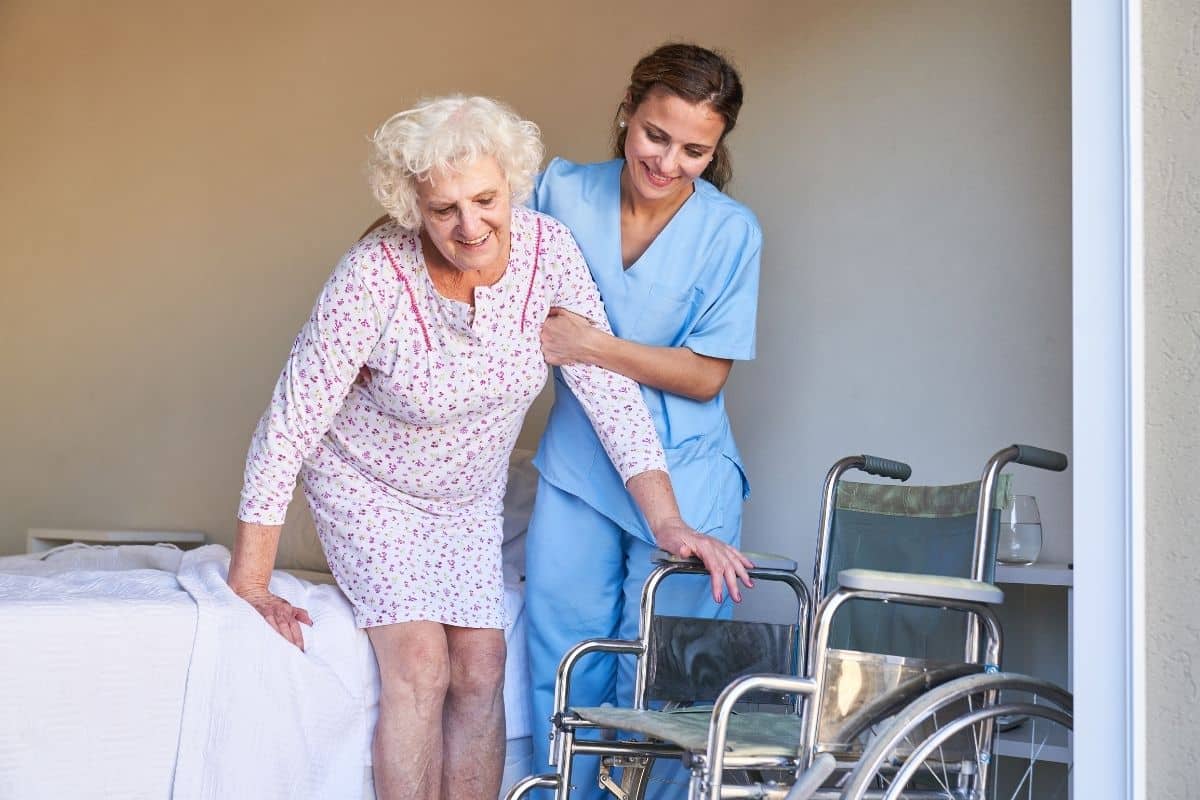How would you know if your aging parent needs help? A few telltale signs give a strong indication of whether or not you need to step in and assist. Of course, some signs may be more obvious than others. We’ve listed the most frequently reported by professionals to help you determine whether the time is right to intervene and help your aging parent make a move to a longer-term care community.
Remember, no one knows your aging parent better than you, so you’ll be in the best position to judge what is normal behavior and what falls outside the norm. The signs listed below merely provide a thorough guideline for determining the need to help your aging parent.

1. Forgetting to pay bills on time
If collection agencies are starting to bang on the door, and the mailbox is full of late payment notices or penalties due to missed payments, it may signify that your aging parent needs help.
2. Changes in mood or extreme mood swings
Are your parents acting differently toward you, friends, or even strangers? Have they started expressing depressive behavior and having generally low levels of energy? Have you noticed them not smiling like they used to?
3. Cluttered, dirty, or disorganized house
Is the home starting to appear different or unrecognizable? Are appliances and fixtures starting to break without getting the necessary repairs? Have they stopped cooking meals altogether due to kitchen appliances not working anymore? Have they started neglecting to maintain smoke alarms or broken light bulbs in and around the home?
4. Uncertainty when performing familiar and simple tasks
If everyday tasks such as doing the laundry or packing the dishwasher are falling to the wayside, it may signify that your aging parent needs help.
5. Physical appearance is starting to deteriorate
Is your aging parent regularly neglecting their appearance? Are their clothes starting to look tattered and dirty?
6. Keeping groceries long after the expiry date
Is expired food or products causing the house or fridge to smell?
7. Increased forgetfulness
Are they constantly searching for misplaced keys, a wallet, or any other items of importance? Have they started missing important appointments? Are they frequently rescheduling appointments, or do they merely not pitch?
8. Infrequent or improper medication management
Are you noticing full bottles of prescription pills? Are they complaining of symptoms due to not taking chronic medication as prescribed?
9. Leaving house or yard maintenance unattended
Has the trash started piling up? Have the grass or weeds started growing uncontrollably? Have neighbors complained about the trash smelling or attracting rodents?
10. Loss of interest in activities they once enjoyed
Can they recall the last time they participated in an activity they loved?
11. Poor eating habits or sudden weight loss
Are they eating considerably less or consuming only fast food or prepackaged meals?
12. Neglecting personal hygiene
Have you noticed an obvious body odor or bad breath? Are their nails neat and clean? Are they washing and combing their hair frequently?
13. Trouble getting up from a seated position
Are you observing strain when your aging parent needs to get in or out of a chair, the bath, or the car? This could be a more obvious sign that your aging parent needs help.
14. Unexplained bruises or frequent injuries
Are they exhibiting bruises that seem to have no logical explanation, or are you noticing more falls or injuries of late?
15. Noticeable damage or dents to their car
Are fender benders or minor scratches and bumps appearing more often on their car’s exterior? Have you noticed an increase in minor accidents? Do they seem to brush issues of driving safety off, or do they take this topic seriously?

These are just a few signs that could indicate that your aging parent needs help. Whether this means having the tough conversation about potentially moving to a longer-term care community or simply getting them to admit that they need professional help if you’re at a loss of what your next step needs to be, remember that you can reach out to us at Options for Senior Living for a complimentary consultation with one of our local experts. We provide advice, guidance, and even a trusted referral to ensure you have complete peace of mind that your senior loved one is receiving the care and attention they deserve.


